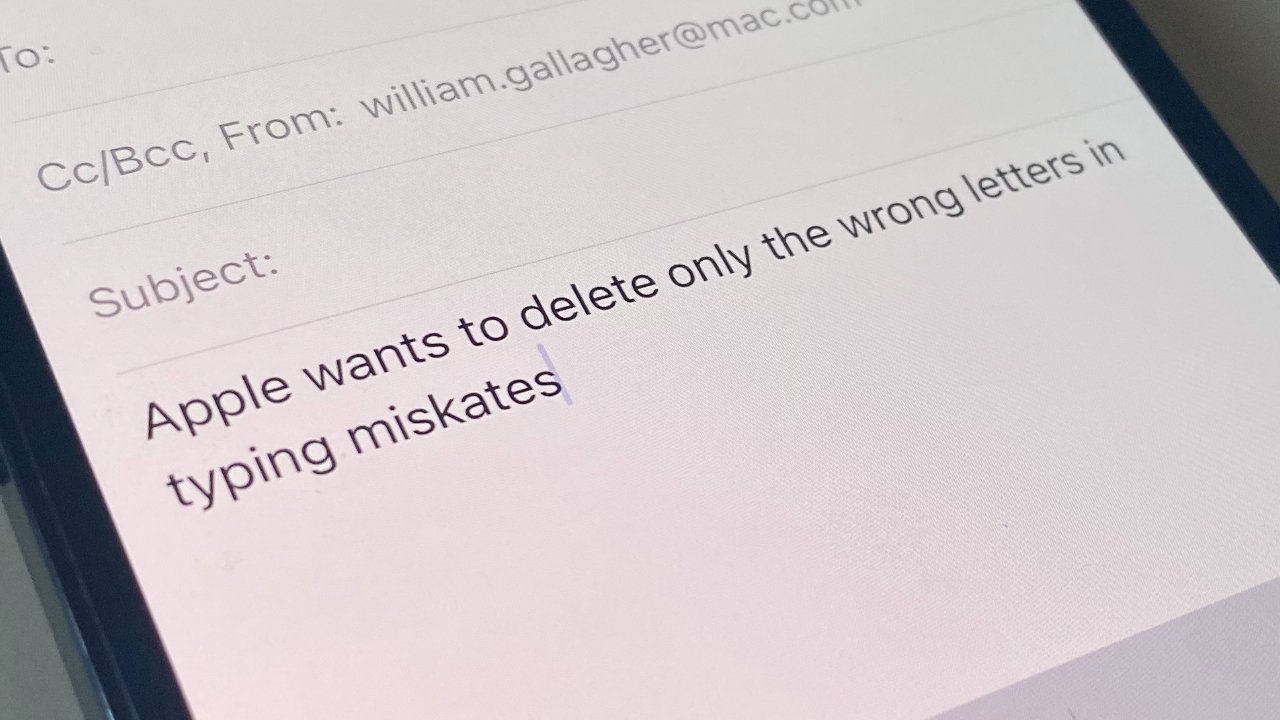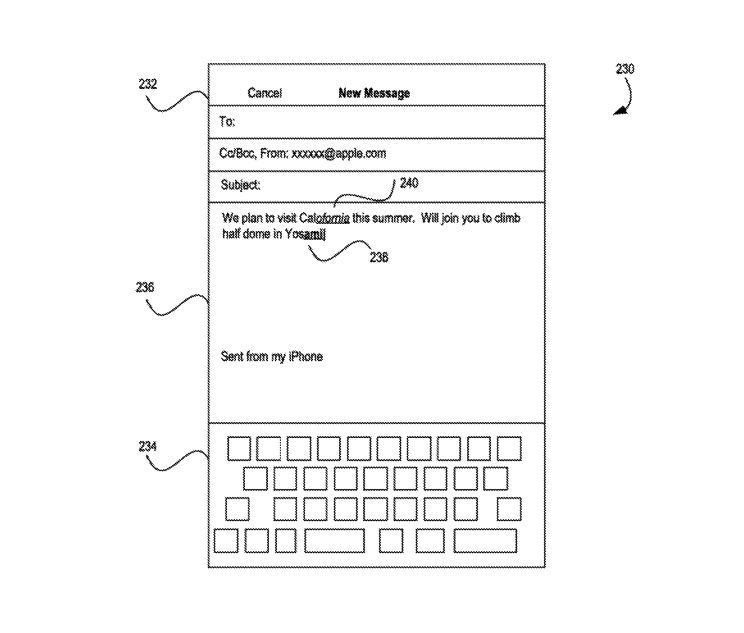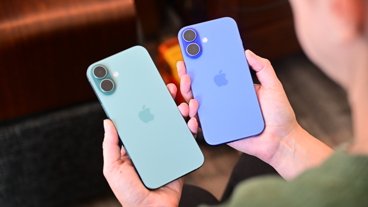Rather than just spotting whole mistyped words, Apple wants iOS to figure out which letters are wrong, delete those on the fly with little user intervention, and keep the right ones.
It's 15 years now since Apple designer Ken Kocienda invented what would become the iPhone's on-screen keyboard. Apple has since refined it with features such as Slide to Type, and it has been filing patent after patent on autocorrection ideas. Now it's been granted yet another patent, and this one is about speeding up how we deal with typing mistakes.
"Intelligently deleting back to a typographical error," is not concerned with the usual issue over spotting a mistake as you type it, although that is part of this. Currently, if you make a mistake then you can tap Delete several times to remove each letter.
Or, with the introduction of Slide-to-Type, Apple also added the option to Delete Slide-to-Type by Word. With that switched on, then moving your finger from the mistaken word to the Delete key, will delete the entire mistaken word for you.
This patent wants to speed things up by quickly removing the mistyped part of the word. If you've typed the first couple of letters correctly, for instance, then Apple proposes that it should be possible to automatically delete everything except those two.
The idea is that you see a mistake, and you don't have to delete the whole word, just the part from which there's an error. And you don't have to fiddle with moving the cursor or tap, tap, tapping delete. The iPhone will move the cursor back to just after the last correct letter, and then wipe out the remainder of the mistaken word.
"After a user inputs a sequence of characters, an error may be identified being in the middle of the sequence of characters," says the patent. "Currently, a user can correct the entire sequence of characters via an auto-correction function, which sometimes fails to provide replacement words that accurately reflect what the user intends to input."
"What is needed in the art are methods and systems that allows a user to efficiently delete characters corresponding to an input error and restart/continue inputting characters," continues Apple.
The iPhone is already adept at spotting typing mistakes, both because of its built-in dictionary that it compares your typing to, and its knowledge of language structure. If you type the letter "a," for instance, then there's around a 90% chance in English that the next letter will be a consonant.
If it isn't, there's a decent chance you've made a typing mistake. Multiple algorithms like that help you type accurately, and spot when you've made a mistake. So if it's all intensely more complicated to calculate than this sounds, we have had iPhones detecting mistyped words for a decade and a half.
What we haven't got is iPhone detecting when the first few letters of the word are right, and it's the rest that are wrong. This new patent describes approaches such as decision trees based on which letter is typed when, and it describes calculations on the likelihood of mistaken letters.
This patent for deleting a few letters takes inventor Morgan H. Winer in excess of 16,000 words to adequately describe. Just as with the original iPhone keyboard, then, we're going to end up rudely ignoring the brilliance of software design. We're going to continue entirely blaming the iPhone for our bad typing, too.
Stay on top of all Apple news right from your HomePod. Say, "Hey, Siri, play AppleInsider," and you'll get latest AppleInsider Podcast. Or ask your HomePod mini for "AppleInsider Daily" instead and you'll hear a fast update direct from our news team. And, if you're interested in Apple-centric home automation, say "Hey, Siri, play HomeKit Insider," and you'll be listening to our newest specialized podcast in moments.
 William Gallagher
William Gallagher








-m.jpg)






 Christine McKee
Christine McKee
 Charles Martin
Charles Martin
 Mike Wuerthele
Mike Wuerthele
 Marko Zivkovic
Marko Zivkovic
 Malcolm Owen
Malcolm Owen





-m.jpg)






9 Comments
Brilliant and so obvious the solution. Well done Mr Morgan H. I have a cold beer waiting for you next tie we meet! When?
Oops....did you pick the typo above ? My Bad !!! So Apple, get your act into gear and implement this feature, like soon !
I'm finding the latest iteration of autocorrect too heavily favours brand names and machine learnt alternatives regardless of proper context.
Brand name E.g. A word that also happens to be a brand name can sometimes be capitalised, regardless of context. It's especially annoying as there are many brands which are plain-english words, leading to a sentence that has randomly capitalised words. (This isn't about genericised brand names such as using "band-aid" instead of "plaster".)
Machine learnt E.g. A sentence like "I did that earlier." will be changed to "I did. That earlier." Due to autocorrect seemingly favouring "I did." Interestingly resetting the dictionary didn't help resolve this issue, it keeps coming back.
There also seem to be issues with Dictation. Whereby phrasing such as "the/this/that <noun>" are replaced by the noun written twice. Leading to dictated sentences like "I looked at the paperwork" becoming "I looked at paperwork paperwork". Anyone else experiencing this issue
Right now, I turn off word prediction and spelling checker. It freezes my typing input and will not let me advance to next word.